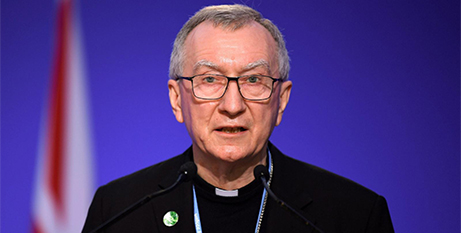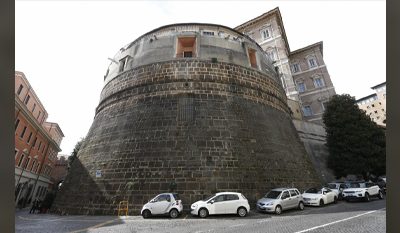
Individuals and corporations have a moral obligation to pay their fair share of taxes, and wealthy nations have an obligation to use that money to help the poor and provide aid to developing nations, says the Vatican secretary of state. Source: CNS.
The “overarching objective” of tax collection and government spending “should be to cultivate a public finance framework that is not only effective but also serves as a catalyst for solidarity and development”, Cardinal Pietro Parolin told participants in a workshop sponsored by the Pontifical Academy of Social Sciences on Thursday.
The “Tax Justice and Solidarity” workshop looked how tax policies, tax evasion and government spending impact economic inequality and the ability of nations to fulfill their obligations to their own citizens and to the global community.
“It is not sufficient to be vigilant in the fight against corruption,” Cardinal Parolin told participants.
“There is also a moral obligation to assist those most in need and to provide education and health care. Furthermore, wealthy nations are obligated to provide aid to developing nations.”
The academy’s note for the workshop said, “Tax avoidance by multinational corporations is one of the most toxic aspects of globalisation. Corporations that make billions of dollars of profits whilst benefiting from the investments in knowledge, technology, and infrastructure financed by public sectors, have been the major winners of globalisation.”
“By shifting a large part of their profits to tax havens, they deprive public sectors of the critical resources needed for investment in fundamental human rights such as health and education, and in policies to combat poverty and climate change,” the note said.
Cardinal Parolin told workshop participants that tax collection and public spending have a “pivotal role” to play in the economic well-being of societies.
“A judiciously designed public finance system characterised by fairness, efficiency and effectiveness has the potential to exert a transformative influence on the economic landscape,” he said. But “the current model fuels inequalities, both between and within countries.”
For the Catholic Church, as explained by Pope Francis, a just tax system is characterised by “legality, impartiality and transparency”, he said.
“Taxation should promote the redistribution of wealth and protect the economically disadvantaged,” the cardinal said.
FULL STORY
Taxes should fund solidarity at home and abroad, Cardinal Parolin says (By Cindy Wooden, CNS)




